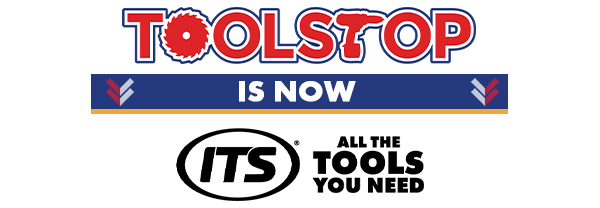Earth Augers
Earth augers make digging effortless, ideal for professionals and homeowners tackling fence posts, tree planting, and landscaping projects. With powerful torque and efficient drilling, they handle tough soil conditions with ease.
Who Uses Earth Augers?
Earth augers are versatile tools used by a variety of professionals and DIY enthusiasts. Here’s how different users benefit from them:
- Landscapers – Use earth augers for quick and efficient planting of trees and shrubs, ensuring uniform hole sizes in all soil types.
- Farmers – Ideal for setting fence posts and planting rows, earth augers help streamline agricultural projects, saving time and effort.
- Construction Workers – Rely on augers for fence installation, signage, and groundwork, making quick work of digging in various terrain.
- Homeowners – Great for home improvement tasks like planting or building a deck, earth augers simplify and speed up the digging process.
Earth Augers Are Great for Jobs Such As:
- Planting trees and shrubs – Create uniform, deep holes in minutes, providing optimal space for roots to grow and develop.
- Fence post installation – Easily dig precise, consistent holes for setting posts securely and quickly on farms or residential properties.
- Deck building – Prepare holes for footings, ensuring solid and stable support for deck structures in a fraction of the time.
- Installing signage – Perfect for outdoor signage projects where accurate, stable post holes are essential.
- Soil sampling – Drill into the ground to collect soil samples for agricultural or environmental analysis.
How to Choose the Best Earth Auger
Choosing the right earth auger depends on the scope of your project and the type of soil you’ll be working with. Here are the most important factors to consider:
1. Power Source: Gas vs. Electric
Gas-Powered Earth Augers: Provide high torque and are ideal for larger, more demanding projects and tough soil. They offer mobility without being tethered to a power source, but are heavier and require more maintenance.
Electric Earth Augers: Lighter and more environmentally friendly, perfect for smaller projects and softer soil. They require access to a power source, which limits portability but provides consistent power.
2. Auger Size and Bit Diameter
The diameter of the auger bit determines the size of the hole. For fence posts, a bit diameter of 4-6 inches is sufficient, while larger planting or foundational work might need 8 inches or more. Choose based on your specific project needs.
3. Engine Power and Torque
Higher engine power and torque are necessary for digging through tough, compacted soil or rocky ground. For demanding, heavy-duty tasks, opt for an auger with high torque for easier and more effective digging.
4. Handle and Vibration Control
Comfortable, ergonomic handles with anti-vibration features are essential for reducing strain during extended use. This is especially useful for larger projects where continuous digging is required.
5. Soil Compatibility
Some earth augers are better suited for soft, loose soil, while others can handle compacted or rocky ground. Assess your soil type to choose an auger built to handle those conditions effectively.
Popular Accessories for Earth Augers
Using the right accessories with your earth auger can enhance its effectiveness, extend its lifespan, and make your digging projects easier. Here are three essential accessories to consider:
1. Extension Shafts
Extension shafts increase the reach of your auger, allowing you to dig deeper holes without straining. This is particularly useful for planting trees or installing fence posts in deeper ground.
2. Replacement Auger Bits
Having a variety of auger bit sizes enables you to handle different tasks, from small garden projects to larger post installations. Replacement bits ensure you’re always prepared for any soil condition or hole diameter.
3. Safety Gear
Protective gloves, eye protection, and earplugs are essential when operating powerful earth augers. Safety gear reduces the risk of injury and keeps you comfortable during extended use.
Frequently Asked Questions
What is an earth auger used for?
Earth augers are used to drill holes in the ground, typically for fence posts, tree planting, and construction projects. They help create uniform, deep holes quickly and efficiently, making them ideal for landscaping and farming.
How do I choose the right size auger bit?
The size of the auger bit depends on your project. For standard fence posts, a 4-6 inch bit works well. Larger projects, like tree planting or foundational work, may require 8 inches or more. Check your auger's specifications for compatible bit sizes.
Are earth augers suitable for all types of soil?
Earth augers can handle various soil types, but their performance may vary. Compact or rocky soil requires a more powerful auger with high torque, while softer soil is easier to work with using standard models. For best results, select an auger suited to your soil conditions.
What maintenance does an earth auger require?
Regular maintenance includes checking and tightening bolts, cleaning the blades and bits, and keeping the engine lubricated (for gas-powered models). Store your auger in a dry place to prevent rust and ensure it’s in good working condition for future use.
Can earth augers be used for ice drilling?
Some earth augers can be adapted for ice drilling, but it's best to use a specific ice auger for the task. Ice augers are designed with blades that cut through ice more effectively, while earth augers may struggle or become damaged when used on ice.
How to Choose the Best Magnetic Drill
When selecting a magnetic drill, focusing on the key specifications will ensure you choose a tool suited to your projects. Here are the most important features to consider:
1. Power Source: Electric vs. Hydraulic
Electric Magnetic Drills: Ideal for general use in various settings, electric models are highly portable and versatile. They’re easier to set up, making them perfect for workshop or jobsite tasks.
Hydraulic Magnetic Drills: Designed for heavy-duty industrial applications, hydraulic drills deliver high torque and are suited for continuous use. They’re commonly used in settings with power restrictions where hydraulic power is available.
2. Drill Capacity and Size Compatibility
Consider the maximum hole diameter and depth you need. For thicker or denser materials, choose a drill with larger capacity to handle the material effectively. Check compatibility with different core sizes for more flexibility.
3. Magnetic Base Strength
The holding power of the magnetic base is crucial for stability. For vertical or overhead applications, look for high magnetic adhesion (typically measured in pounds or newtons) to ensure the drill stays securely in place during operation.
4. Speed Settings and Adjustability
Variable speed control allows you to adjust the drill for different materials. For tasks requiring precision, such as drilling through stainless steel or hardened metals, a drill with adjustable speed settings provides better control.
5. Portability and Weight
Consider the weight if you need to carry the drill between sites or use it in tight spaces. Lightweight magnetic drills are easier to handle, especially for vertical applications, without compromising on power.
6. Safety Features
Look for safety features like overload protection, which prevents overheating, and automatic shut-off to enhance safety. Safety straps are also essential for extra support when drilling in elevated positions.
Popular Accessories for Magnetic Drills
Using the right accessories with your magnetic drill can improve its performance, extend its lifespan, and ensure safety during demanding projects. Here are three essential accessories to consider:
1. Annular Cutters
Annular cutters are specialized bits that create clean, precise holes in metal. They’re faster and more efficient than traditional twist drills, making them ideal for professional metalwork, reducing wear on the drill and ensuring smooth results.
2. Coolant Systems
Coolant systems help maintain lower temperatures during intense drilling, protecting both the drill and cutter. This accessory is essential for prolonging tool life and enhancing performance during extended, heavy-duty operations.
3. Safety Straps
Safety straps provide additional support by securing the drill to metal surfaces, particularly when drilling overhead or at an angle. They add an extra layer of safety, ensuring stability and reducing the risk of accidents.


